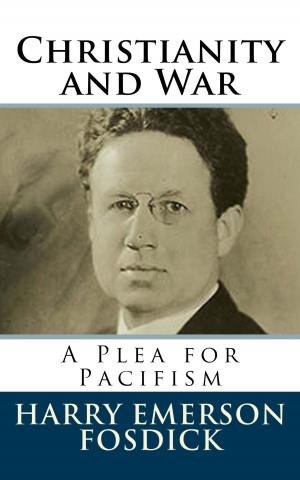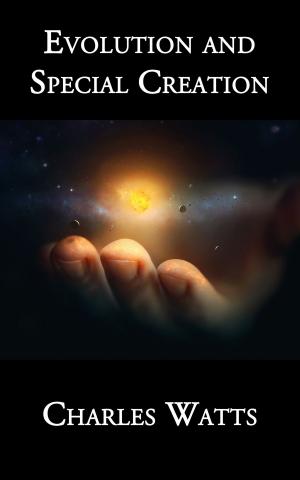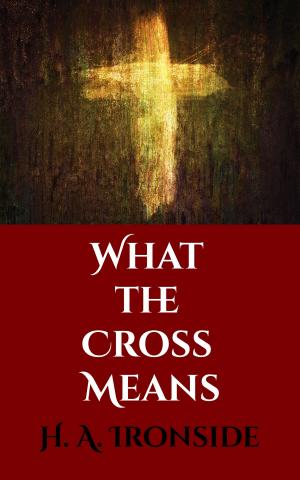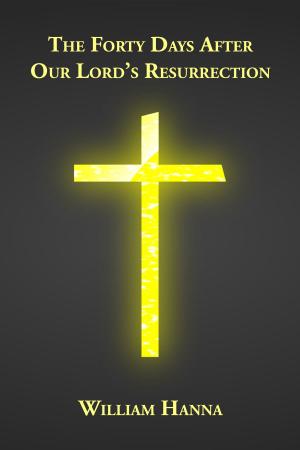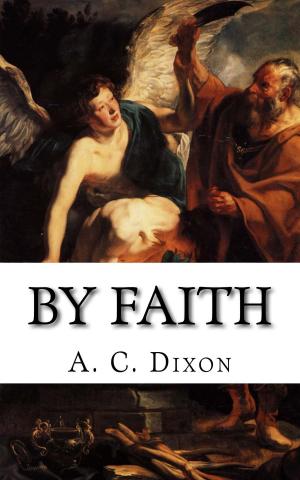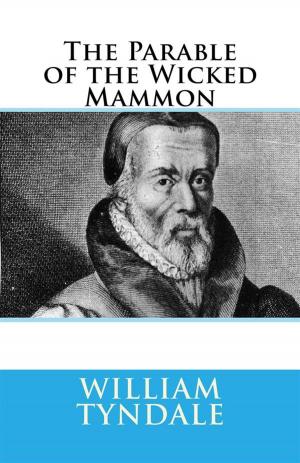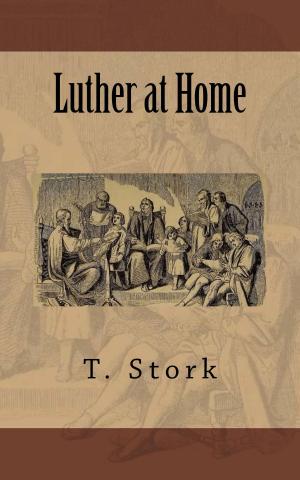If a Man Die
Nonfiction, Religion & Spirituality, Christianity, Christian Sermons, Christian Literature, Christian Life| Author: | J. D. Jones | ISBN: | 1230001932508 |
| Publisher: | CrossReach Publications | Publication: | September 25, 2017 |
| Imprint: | Language: | English |
| Author: | J. D. Jones |
| ISBN: | 1230001932508 |
| Publisher: | CrossReach Publications |
| Publication: | September 25, 2017 |
| Imprint: | |
| Language: | English |
There is no question to which the human soul more eagerly desires a clear and sure answer than this one: “If a man die, shall he live again?” It is an old, old question. Job asked it long ago in an agony. The one fact he could see, the one fact which admitted of no challenge or dispute, was the tragic fact of death. “Man dieth and wasteth away; yea, man giveth up the ghost, and where is he? As the waters fail from the sea, and the river decayeth and drieth up, so man lieth down and riseth not: till the heavens be no more, they shall not awake, nor be roused out of their sleep.” And yet, if the grave really was the end, if death was the very last word, it seemed to Job that life was just a tangled web of injustice and wrong, and that there could not be a wise and good God at the heart of things. That sorely-tried patriarch passionately desired an assurance that man should live again. He almost demanded a future life to rectify the wrongs and waste and distresses of this. There is entreaty, there is pathetic appeal, there is passion and desire in this question: “If a man die, shall he live again?”
Thousands and tens of thousands of people are asking that same question with a similar urgency in these days of ours. The awful harvest which death has been reaping in the Great War has made it the question of questions for a vast host of bereaved fathers and mothers and wives and lovers. They want to know—what of their beloved dead? Is a grave in France or Mesopotamia, or beneath the waters of the North Sea the end of them, or shall they live again?
Five-and-twenty or thirty years ago the great mass of our people seemed to be very little interested in the question of a Beyond. Sir George Adam Smith, writing at that time, could say, “In the thinking of civilised man there has been for years a steady ebb from the shores of another life.” What John Ruskin calls the “heaven light” was fading out of the life of the average man, and he was tending to limit his vision to the cares and duties and pleasures of the passing day. But the Great War has changed all that. The tide has turned. Men are asking questions about the Beyond. They want to be assured that there is a Beyond. Nothing but the clear certainty of a life to come avails to comfort the stricken hearts of men in this time of widespread sorrow and loss.
But can we get this clear certainty? Have we a right to cherish the belief that though a man die, he shall live again? The belief itself is so tremendous, and so much depends upon it, that we ought to have good and sufficient grounds for holding it. I am persuaded that we have such good and sufficient grounds for faith, and what I want to do in this opening chapter is to suggest some of the reasons which justify us in believing confidently, unhesitatingly, exultingly, that though our dear ones die, they live again.
There is no question to which the human soul more eagerly desires a clear and sure answer than this one: “If a man die, shall he live again?” It is an old, old question. Job asked it long ago in an agony. The one fact he could see, the one fact which admitted of no challenge or dispute, was the tragic fact of death. “Man dieth and wasteth away; yea, man giveth up the ghost, and where is he? As the waters fail from the sea, and the river decayeth and drieth up, so man lieth down and riseth not: till the heavens be no more, they shall not awake, nor be roused out of their sleep.” And yet, if the grave really was the end, if death was the very last word, it seemed to Job that life was just a tangled web of injustice and wrong, and that there could not be a wise and good God at the heart of things. That sorely-tried patriarch passionately desired an assurance that man should live again. He almost demanded a future life to rectify the wrongs and waste and distresses of this. There is entreaty, there is pathetic appeal, there is passion and desire in this question: “If a man die, shall he live again?”
Thousands and tens of thousands of people are asking that same question with a similar urgency in these days of ours. The awful harvest which death has been reaping in the Great War has made it the question of questions for a vast host of bereaved fathers and mothers and wives and lovers. They want to know—what of their beloved dead? Is a grave in France or Mesopotamia, or beneath the waters of the North Sea the end of them, or shall they live again?
Five-and-twenty or thirty years ago the great mass of our people seemed to be very little interested in the question of a Beyond. Sir George Adam Smith, writing at that time, could say, “In the thinking of civilised man there has been for years a steady ebb from the shores of another life.” What John Ruskin calls the “heaven light” was fading out of the life of the average man, and he was tending to limit his vision to the cares and duties and pleasures of the passing day. But the Great War has changed all that. The tide has turned. Men are asking questions about the Beyond. They want to be assured that there is a Beyond. Nothing but the clear certainty of a life to come avails to comfort the stricken hearts of men in this time of widespread sorrow and loss.
But can we get this clear certainty? Have we a right to cherish the belief that though a man die, he shall live again? The belief itself is so tremendous, and so much depends upon it, that we ought to have good and sufficient grounds for holding it. I am persuaded that we have such good and sufficient grounds for faith, and what I want to do in this opening chapter is to suggest some of the reasons which justify us in believing confidently, unhesitatingly, exultingly, that though our dear ones die, they live again.




